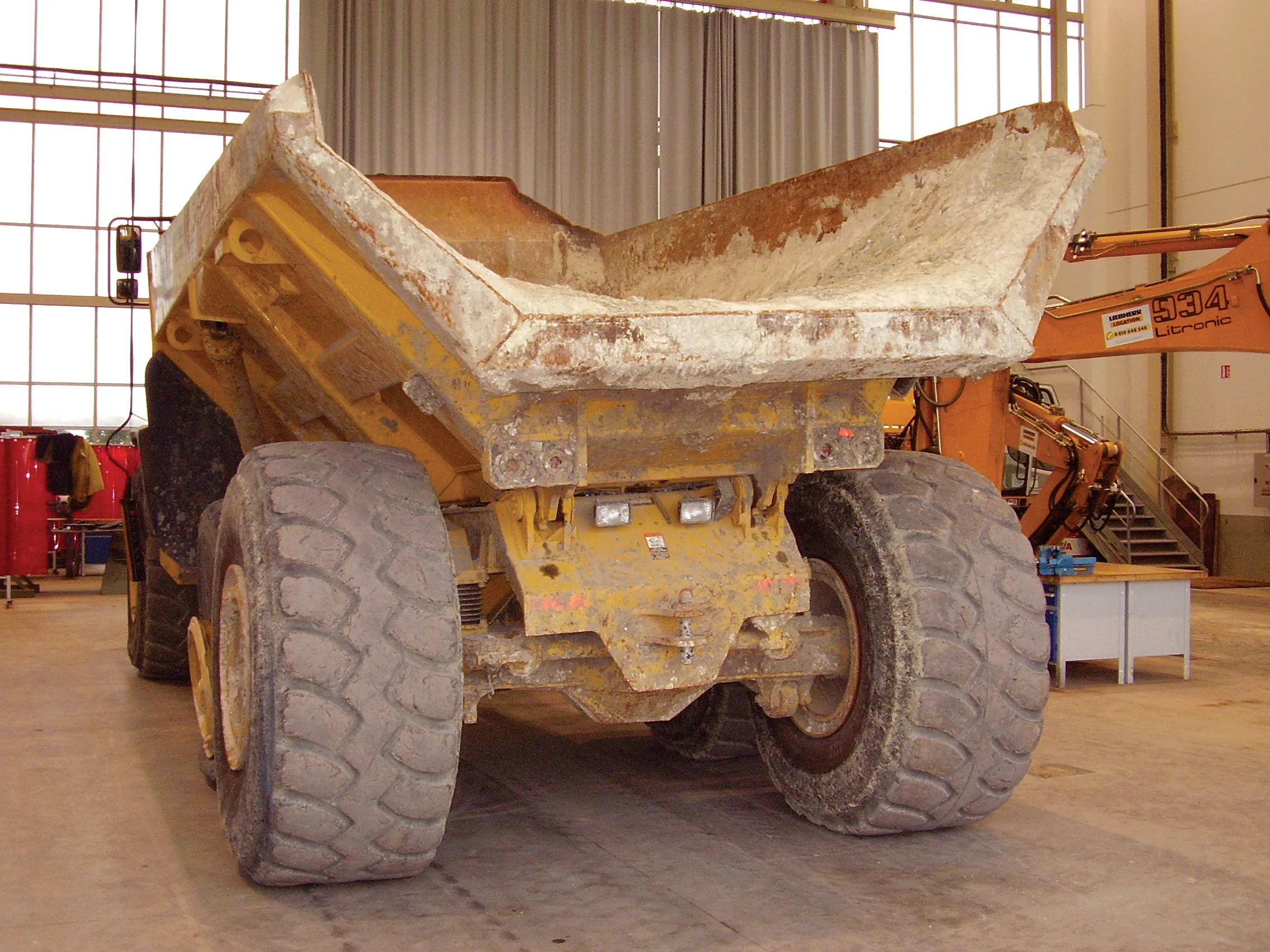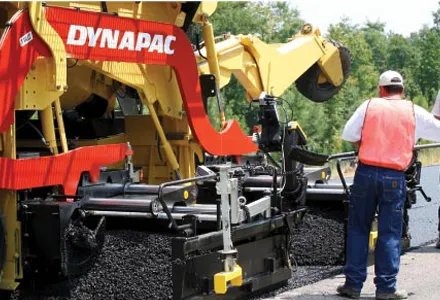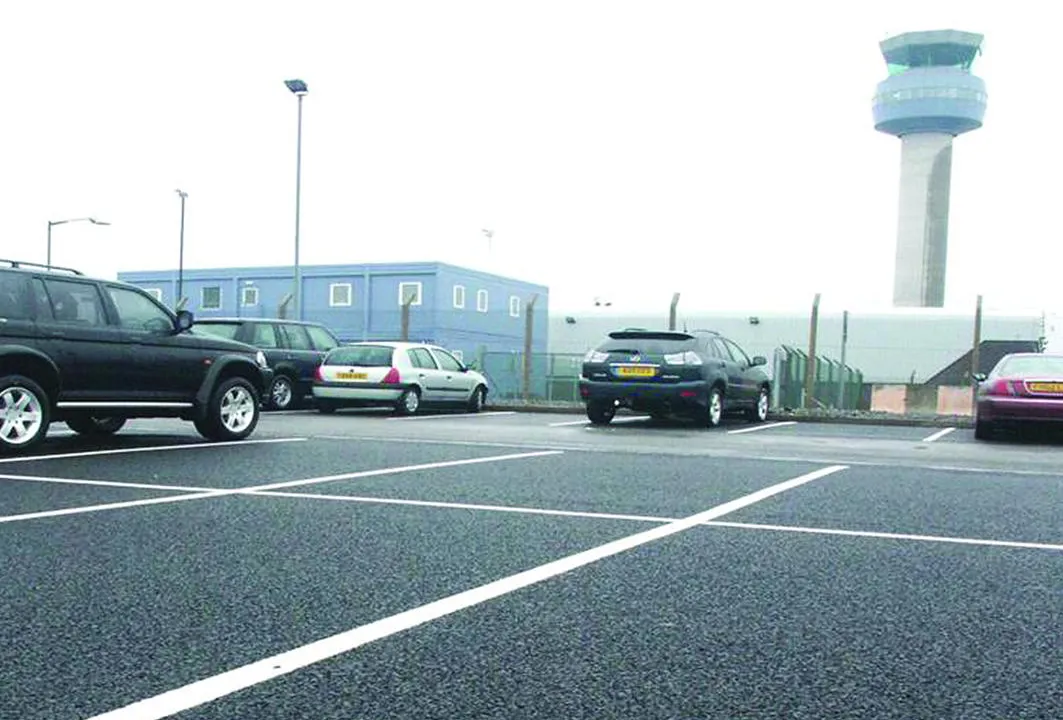South Africa takes crumb rubber use to the next level - *Anders Marschall Jensen The preservation of the environment is a global concept, and in the road construction industry, it is all about preservation of roads. In earlier days, roads were built with the primary goal of moving passenger traffic from one place to another, but these days, roads are very different. Not only is there passenger traffic, and more of it, but roads must also deal with extensive movement of products in heavy vehicles. Therefore,
November 5, 2012
Read time: 5 mins

RSS
The overall objective from Denimo Tech is to secure environmentally friendly infrastructure, which is gained through a consistent focus of innovation and collaboration with our stakeholders.
Every year, roads are torn up, repaired and resurfaced because of erosion, cracks and other conditions. But that could all change thanks to new research and experimentation being completed by our team with client, Grinaker LTA of South Africa.
Over the past 16 Months,6446 DenimoTech and 6825 Grinaker LTA have been discussing ways to make longer lasting roads. “Keeping a close eye on the environment is a key initiative of Grinaker, so as part of this initiative, we have been using crumb rubber solutions in South Africa since 1983. It is nothing new to the industry,” said Carl Williams, business unit manager at Grinaker. “But using crumb rubber alone is not enough. We need to find a solution that not only helps us recycle old tyres – for the purpose of preserving our world’s natural resources – but we, in South Africa, need roads to last longer through our extreme climate changes and increased traffic load.”
South Africa is known for its extremely arid to subtropical and humid weather, which is often accompanied by long periods of heavy rainfall during the seasons of summer and winter. South Africa’s roadways are well developed and cover about 480,000km, of which about 110,000km is paved or surfaced. But South Africa has seen steady economic growth, resulting in higher traffic volumes and higher axle loads. This has made it necessary to find additional, longer lasting paving solutions that save both energy and maintenance costs.
Williams added, “Because the very best of raw materials are used in the manufacturing of tyres, for example, natural and synthetic rubber, carbon black and anti-oxidants, we already know traditional crumb rubber modified bitumen offers many advantages over conventional and polymer modified bitumen. These include improved engineering properties such as improved fatigue, greatly improved resistance to reflection cracking, reduced maintenance, very good long-term durability and improved life cycle costs; and that is why we are making the crumb rubber solution even better.”
Williams said that it evaluated five global suppliers before calling upon DenimoTech to purchase its bitumen emulsion and PMB plants. When Grinaker called DenimoTech, the team travelled to South Africa and collaborated with the local engineers to find a solution. Following this stage, the personnel from both Grinaker and DenimoTech agreed that the better crumb rubber is distributed within the bitumen, the better the product, and therefore, the longer lifespan of the roadway.
This was clear from the discussions. If the crumb rubber is not distributed evenly, it can lead to various problems such as plant breakdowns and inferior product when the product is laid on the road. There is also a greater risk of large lumps in the bitumen distributors, which can block spray bars and need to be removed. If blockage is not avoided, tramlining can occur while spraying the product. This can be extremely costly and time consuming to fix, as the sections would have to be reworked to comply with the contract specification.
After consideration between DenimoTech and Grinaker, the partners came up with the idea of re-engineering the DenimoTech Colloid Mill to enable it to mix crumb rubber with bitumen. The process would be simple and effective. Williams explained, “First, we put the crumb rubber into a high shear mixing chamber at 2,500rpm. Then, we take that product and run it through the re-engineered DenimoTech Colloid Mill to produce a more evenly distributed product.
Worldwide, the logistics sector has suffered from the effects of the economic downturn over the past few years, and it has forced industry to reconsider the way it builds roads. Many might hesitate to use a two-step process because the initial cost is higher than traditional paving methods, but over time, it will save significantly on cost. This method will create roads to last even longer, saving on maintenance costs and energy, and it will strengthen the advantages of traditional crumb rubber modified bitumen.
Williams added that with the DenimoTech blender heating system, there is no need to flush the system after every use, another huge saving on time and cost.
Roads play a pivotal role in the worldwide economic growth, as businesses need easy access to customers, employees and suppliers. The only real, long term solution for reducing costs is to create better, more durable roads.
This two-step crumb rubber modified bitumen process will harvest the highest value when laid on high-traffic roads or roads with extreme temperature changes; areas where the bitumen wears down and cracks more frequently.
This crumb rubber product was laid in South Africa in November 2011. This is the first use of the technology in South Africa and it will be carefully evaluated on a monthly basis. “The best test is the test of time,” said Williams. “Each quarter, we will closely monitor the product for defects and degeneration. Our prediction is that the product will last longer than conventional modified bitumen’s; thus, saving the environment through the use of less energy and recycled tyres and saving money spent on oil, steal and road repairs.”
Evaluation of this two-step crumb rubber modified bitumen is taking place now, and the results will yield specifications on how to optimise crumb rubber to achieve maximum long-term pavement performance.
*Anders Marschall Jensen is CEO and managing director of DenimoTech
RSS
South Africa takes crumb rubber use to the next level - *Anders Marschall Jensen
The preservation of the environment is a global concept, and in the road construction industry, it is all about preservation of roads. In earlier days, roads were built with the primary goal of moving passenger traffic from one place to another, but these days, roads are very different. Not only is there passenger traffic, and more of it, but roads must also deal with extensive movement of products in heavy vehicles. Therefore, the process of constructing roads is significantly more technical to deal with ever-changing load and traffic intensity, all the while keeping the environment in mind.The overall objective from Denimo Tech is to secure environmentally friendly infrastructure, which is gained through a consistent focus of innovation and collaboration with our stakeholders.
Every year, roads are torn up, repaired and resurfaced because of erosion, cracks and other conditions. But that could all change thanks to new research and experimentation being completed by our team with client, Grinaker LTA of South Africa.
Over the past 16 Months,
South Africa is known for its extremely arid to subtropical and humid weather, which is often accompanied by long periods of heavy rainfall during the seasons of summer and winter. South Africa’s roadways are well developed and cover about 480,000km, of which about 110,000km is paved or surfaced. But South Africa has seen steady economic growth, resulting in higher traffic volumes and higher axle loads. This has made it necessary to find additional, longer lasting paving solutions that save both energy and maintenance costs.
Williams added, “Because the very best of raw materials are used in the manufacturing of tyres, for example, natural and synthetic rubber, carbon black and anti-oxidants, we already know traditional crumb rubber modified bitumen offers many advantages over conventional and polymer modified bitumen. These include improved engineering properties such as improved fatigue, greatly improved resistance to reflection cracking, reduced maintenance, very good long-term durability and improved life cycle costs; and that is why we are making the crumb rubber solution even better.”
Williams said that it evaluated five global suppliers before calling upon DenimoTech to purchase its bitumen emulsion and PMB plants. When Grinaker called DenimoTech, the team travelled to South Africa and collaborated with the local engineers to find a solution. Following this stage, the personnel from both Grinaker and DenimoTech agreed that the better crumb rubber is distributed within the bitumen, the better the product, and therefore, the longer lifespan of the roadway.
This was clear from the discussions. If the crumb rubber is not distributed evenly, it can lead to various problems such as plant breakdowns and inferior product when the product is laid on the road. There is also a greater risk of large lumps in the bitumen distributors, which can block spray bars and need to be removed. If blockage is not avoided, tramlining can occur while spraying the product. This can be extremely costly and time consuming to fix, as the sections would have to be reworked to comply with the contract specification.
After consideration between DenimoTech and Grinaker, the partners came up with the idea of re-engineering the DenimoTech Colloid Mill to enable it to mix crumb rubber with bitumen. The process would be simple and effective. Williams explained, “First, we put the crumb rubber into a high shear mixing chamber at 2,500rpm. Then, we take that product and run it through the re-engineered DenimoTech Colloid Mill to produce a more evenly distributed product.
Worldwide, the logistics sector has suffered from the effects of the economic downturn over the past few years, and it has forced industry to reconsider the way it builds roads. Many might hesitate to use a two-step process because the initial cost is higher than traditional paving methods, but over time, it will save significantly on cost. This method will create roads to last even longer, saving on maintenance costs and energy, and it will strengthen the advantages of traditional crumb rubber modified bitumen.
Williams added that with the DenimoTech blender heating system, there is no need to flush the system after every use, another huge saving on time and cost.
Roads play a pivotal role in the worldwide economic growth, as businesses need easy access to customers, employees and suppliers. The only real, long term solution for reducing costs is to create better, more durable roads.
This two-step crumb rubber modified bitumen process will harvest the highest value when laid on high-traffic roads or roads with extreme temperature changes; areas where the bitumen wears down and cracks more frequently.
This crumb rubber product was laid in South Africa in November 2011. This is the first use of the technology in South Africa and it will be carefully evaluated on a monthly basis. “The best test is the test of time,” said Williams. “Each quarter, we will closely monitor the product for defects and degeneration. Our prediction is that the product will last longer than conventional modified bitumen’s; thus, saving the environment through the use of less energy and recycled tyres and saving money spent on oil, steal and road repairs.”
Evaluation of this two-step crumb rubber modified bitumen is taking place now, and the results will yield specifications on how to optimise crumb rubber to achieve maximum long-term pavement performance.
*Anders Marschall Jensen is CEO and managing director of DenimoTech
RSS







